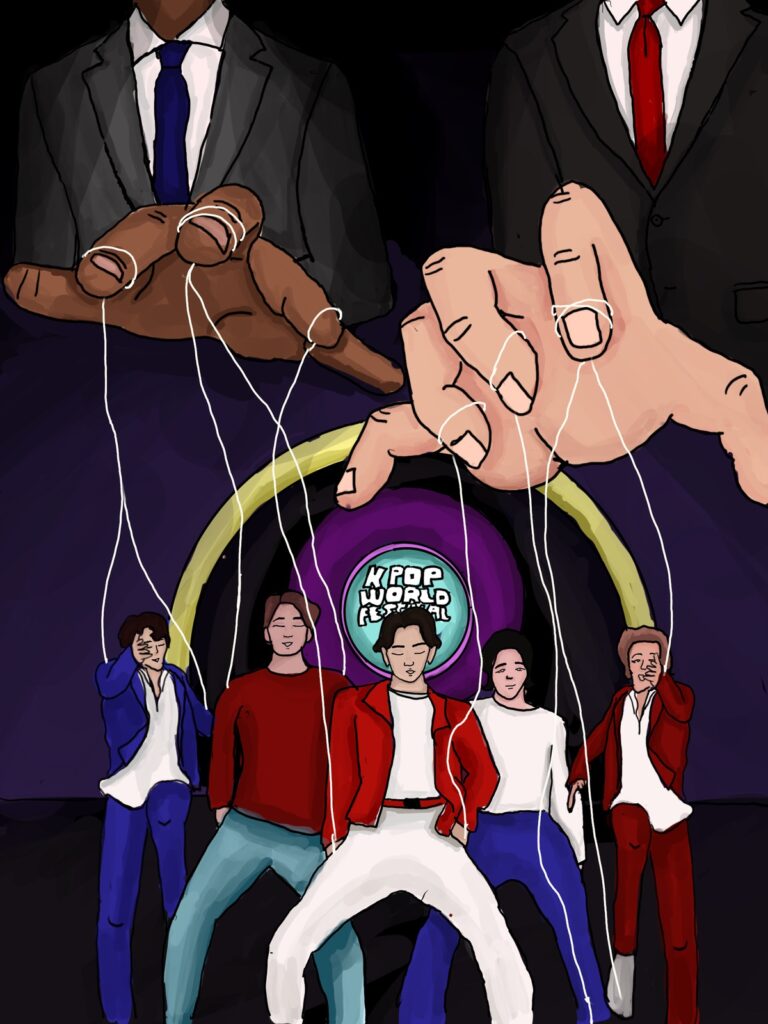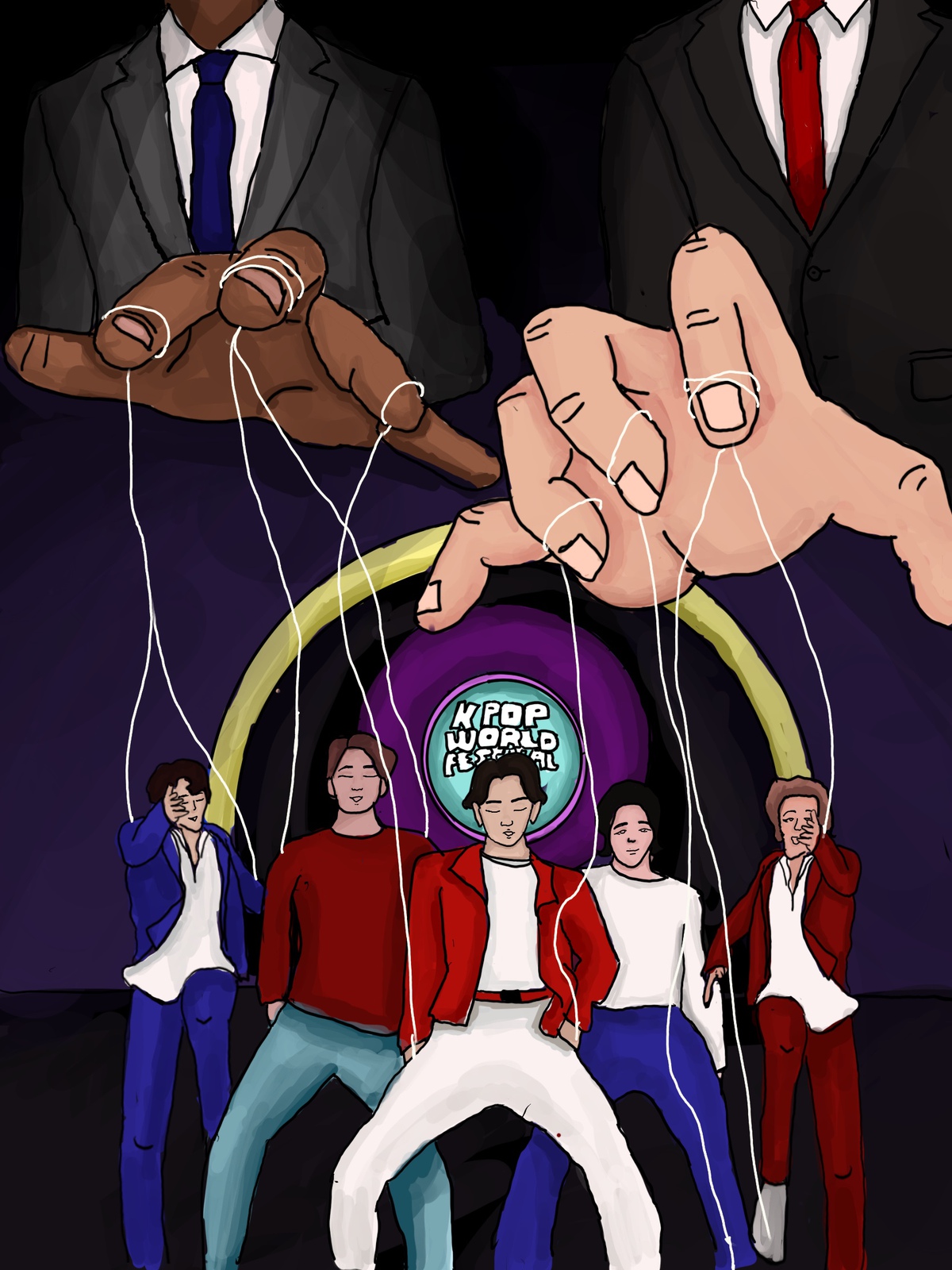
One fine Sunday morning, I heard my neighbour’s 13 year old kid yelling “SMOOTH LIKE BUTTER!” from her bedroom window. They were lyrics from a popular song sung by the world famous K-pop band, BTS. Bops like such are gradually dominating the western market. With their jaw-dropping choreography and awe-stricking visuals, K-pop is becoming a household term.
But the music scene and its culture has a darker side. Is next door Riya pushing her limits when she cried about Jimin having a rumoured girlfriend? Does my friend look at k-pop idols and wishes she was more like them?
The K-pop industry has a tendency of reducing a person to their superficial features like their looks and body. Jeon So Mi from a prominent K-pop group once revealed that some of their clothes for their live performances were actual children’s clothes. Apart from this, there is also a highly recurring theme of promoting infantilism. A K-pop group called Bonusbaby, recently released a song called “If I Become An Adult”, the music video depicts the all-girl K-pop group wearing children’s uniforms and singing along the lines of “I am so ashamed and dad cannot know, I’ll tell you If I Become an Adult”.
The renowned boy-band BTS have had multiple instances of promoting the country’s image of “how women should be” . Songs like Joker and War of Hormones have problematic lyrics like “Girls are like an equation/us guys just do them (yup) /Imma give it to you girl right now/A woman is the best present.” and “Yeah, you’re the best woman, the best vagina [gapjil] / So good are you at doing it, the best vagina / But now that I think about it, you were never the best / I will stop calling you best and instead call you gonorrhea [imjil].”
The industry has been encouraging all women to look and behave the same way. By setting unrealistically high beauty standards, and glorifying some very specific facial features and behaviour they not only force women withing the industry but also spread the same message across the world. Promoting women sexuality, but degrading and objectifying them for the same is a common trend seen in South Korean culture. A bunch of tweets from BTS’s Twitter accounts have proven to do the same.
Girls have got to dress cold [and show skin] both in winter and summer. That’s how men would like them. – BTS Twitter, 2013.
To the general public, these idols embody everything they wish to achieve. With their perfect features and lustre-filled lives, idols are worshipped by their fans, often to a degree where it becomes toxic.
To be a fan is one thing, to be an obsessed, soul-thirsty stalker is another. The difference between the two, however distinct, becomes blurry when it comes to the K-pop industry. Over 50% of all K-pop fans globally, are under the age of 18. And over 87% of them are women. This makes us think about the effect of K-pop and its culture on young girls and its moulding of women and girls, to play right into South Korean’s men fantasies, on a global level.
When a large proportion of K-pop’s content, from music to interviews, are being consumed by younger generation it mentally affects them. The internalised misogyny, the glorification of perfection, their controlled social life and several other issues should be brought to light.
The data, the evidence, and the slight slip-ups are endless, it is time we be more mindful of the content we consume and promote.
Written by Aarthika Srinivasan for MTTN
Edited by Anushka Das for MTTN
Featured image by Ella Stapleton
Artwork by Rohanne Thompson


Leave a Reply
You must be logged in to post a comment.